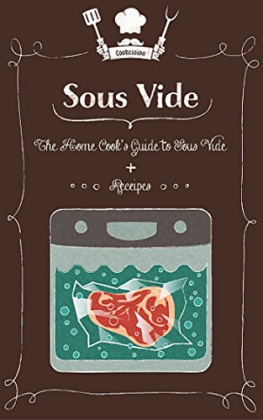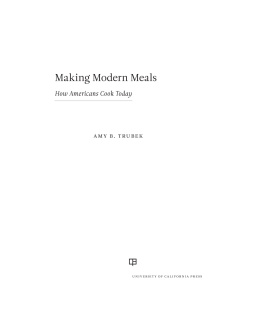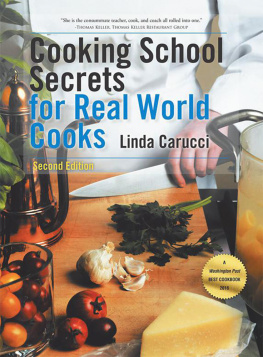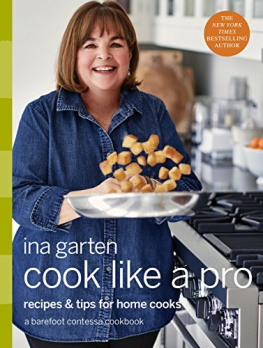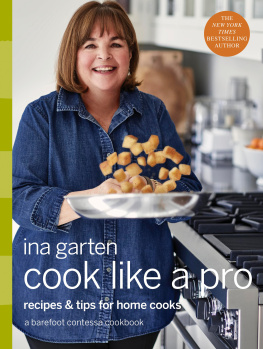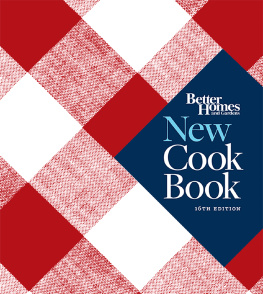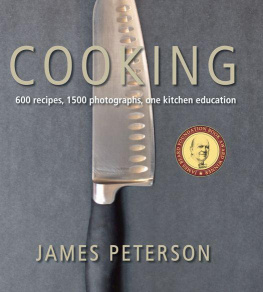Making Dinner
Also available from Bloomsbury
Culinary Art and Anthropology, Joy Adapon
Kitchen Secrets, Frances Short
The Making of the Modern Kitchen, June Freeman
Cooking Technology, edited by Steffan Igor Ayora-Diaz
Making Dinner
How American Home Cooks Produce and
Make Meaning Out of the Evening Meal
Roblyn Rawlins and David Livert
We must first thank the home cooks who so graciously gave their time and candor to help us understand how they go about doing cooking. It has truly been a pleasure and a privilege to learn about their cooking lives, and we hope we have done them justice in our representation here.
Roblyn acknowledges the intellectual and academic support and resources made possible through the generosity of the Faculty Resource Network (FRN) of New York University, which sponsored her in its Scholar-in-Residence Program during the fall semester of 2010. She thanks Debra Szybinski and Anne Ward of the FRN for their leadership of the program. Krishnendu Rays care, critiques, and conversation as Roblyns FRN Research Consultant were simply invaluable. She thanks Dean Richard Thompson of the College of New Rochelle for his support of her application to the Faculty Resource Network and the College of New Rochelle for Faculty Fund awards in support of this research. David acknowledges the support and resources of Pennsylvania State University, Lehigh Valley campus, particularly those of Kenneth Thigpen, Peter Behrens, Kevin Kelley, and Ilyse Resnick.
We thank the editorial team at Bloomsbury Academic for their professionalism, guidance, and patience, including Miriam Cantwell, Lucy Carroll, and Clara Herberg. We are especially grateful to Jennifer Schmidt for commissioning the work of a pair of first-time authors and first-time collaborators. We thank the anonymous reviewers for making our book better.
We are grateful to so many friends and colleagues who offered support, encouragement, and advice for our work, including Anne Reid, Liz Tighe, Ronni Greenwood, Pauline Cullen, Brian McKenzie, Megan Jesse, Bob del Grosso, Anne McBride, Amy Bass, Dan McCarthy, Nereida Seguro-Rico, Nick Smart, Kim Case, Julie Gallagher, and colleagues in the Association for the Study of Food and Society. A special thanks to Michael Pardus, who first brought us to the table, fed us, and inspired us.
We dedicate this book to our mothers, Caroline Rawlins and Marjorie Livert, in loving gratitude for the thousands of dinners they made for us: we can never think of home cooking without thinking of you. Finally, we are grateful to Sammy Livert, our greatest coauthored project, who did his best to keep his parents from finishing The Book but makes our family dinner table the best place we have ever eaten.
Consider the following evening meals prepared for their families by two different home cooks, one in the Middle Atlantic and one in the Pacific Northwest region of the United States.
Melissas Sunday dinner menu: | Cheese Pepperoni Crackers Fresh baby bell peppers |
Peters Wednesday dinner menu: | Cheese Salami Bread Pickles Fresh fruit |
In the cooking journals they completed as part of our research into the meaning and practice of home cooking in the contemporary United States, Melissa and Peter reflected upon their dinners of cheese and sausage. Each considered the meal to have been a success, and each enjoyed preparing dinner that evening.
Melissa is an art teacher who cooks for her husband and their eight-year-old and ten-year-old children. She is a home cook of the type that we describe as a drudge. She does not enjoy cooking yet nevertheless does it out of a sense of obligation so that her family can eat a home-cooked meal together. Often only Melissa and the children are together at the dinner table because her husband gets home from work later in the evening. He enjoys cooking more than she does and often does much of the preparation in the morning so that she just has to throw it together when it is time for dinner. In her interview, Melissa stated, I hate cooking. In the cooking journal, when asked how much she enjoyed cooking on the nights she did so, her answers indicated that she didnt enjoy it and did it only out of necessity: Not much, but necessary; not at all, but had to. However, after serving the dinner described above, Melissa noted in her journal that she did enjoy preparing the meal that evening: it was great, no cooking! She also thought that the dinner was a success because it was easy and different.
Peter works in sales and cooks for his wife and their eight-year-old daughter. He is a home cook whom we assigned to the types of family-first cook and keen cook. As a family-first cook, his cooking practice is highly motivated by a sense of care for his family. He takes a lot of pleasure in preparing good meals they enjoy eating. He also is a keen cook who enjoys building his already above-average skills and knowledge about food and cooking. In his cooking journal, he labeled this menu a French picnic. Peter explained that a friend of his daughter was the familys guest for dinner that evening and she loves Paris, so we did it French style. He judged the meal to be a success: They were very happy it was well received and enjoyed by all. He enjoyed preparing and serving the meal, although he did note in his journal reflections that it was all prep work to make an attractive presentation and no actual cooking.
So we have two home cooks who enjoyed making two almost identical dinners, but the meanings they made out of those dinners were strikingly different. To begin, the social context of the meals differed: in one household, there was a guest for dinner. Peter, along with almost all the home cooks in our study, varies his cooking when hosting dinner guests. He typically sticks to a short list of standards when entertaining guests, with the addition of one or two special dishes selected to please particular guests. In this case, the guest was a Francophile young girl, so Peter prepared a meal that he thought would please her.
In addition to differences in the social context of the cheese and sausage dinner, Melissas and Peters personal orientations and approaches to cooking diverge, as do their cooking skills and knowledge. While each dinner was judged by the cook to be a success, these evaluations were based on very different orientations to and feelings about cooking and food. Peters approach to making dinner as a family-first cook can be seen in his attribution of the meal as a success. He felt his French picnic was a success because his wife, his daughter, and her friend enjoyed eating it. As a family-first cook, what is most important to him in his daily task of making dinner is caring for his family, making them happy, and keeping them healthy by providing good food that they like to eat. As a keen cook, Peters mediated knowledge of French cuisine and culture enabled him to make his dinner of cheese and sausage and accompaniments, which appealed to Melissa simply because it was easy and different, into a special French picnic. In the pages that follow, we demonstrate the complex ways in which the meaning that home cooks attribute to their cooking and to the meals they prepare is shaped by the intersection of their self-identities, orientations, abilities and aspirations as home cooks and by the material, temporal, cultural and social contexts in which their cooking takes place.


